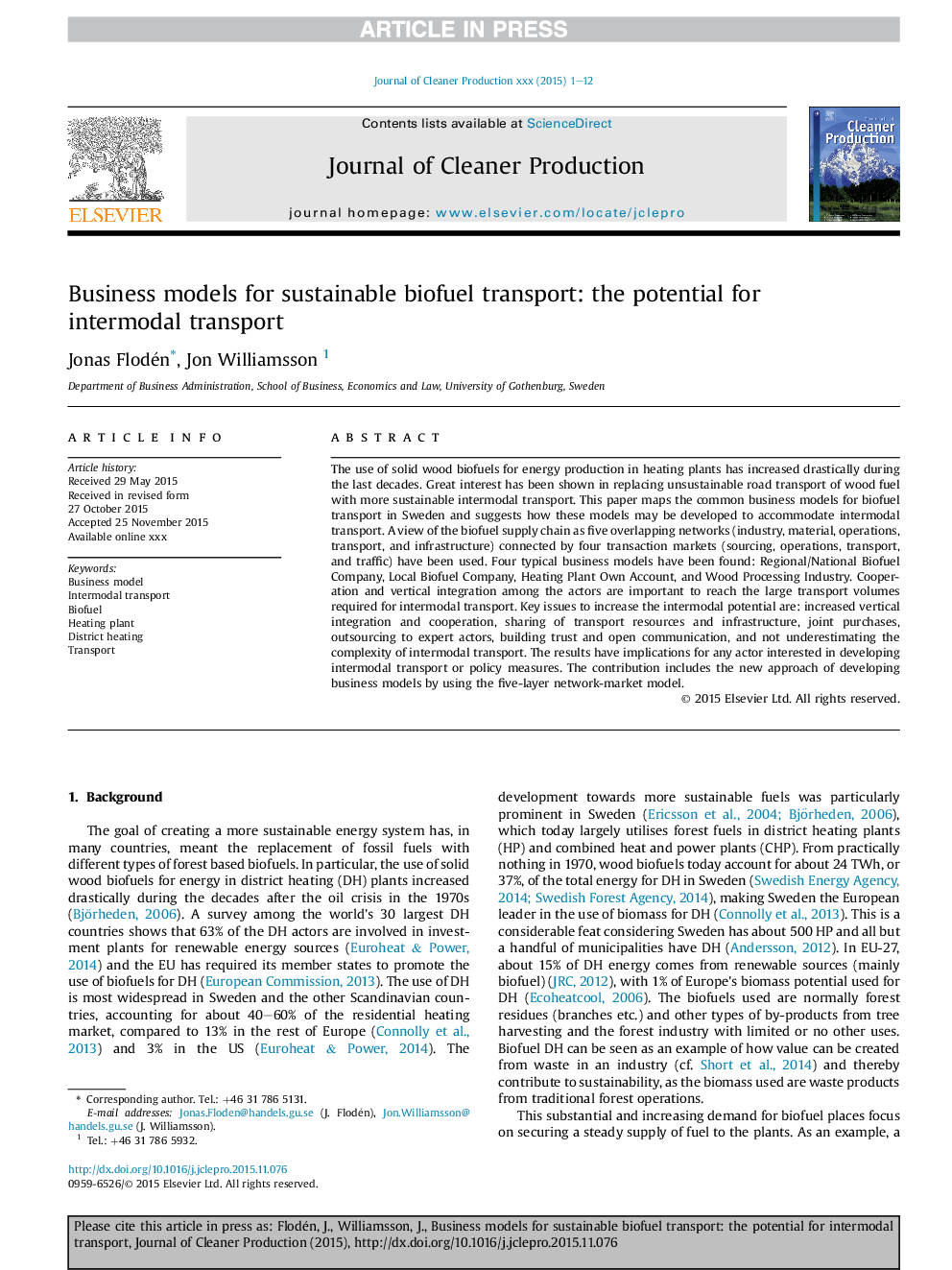| Article ID | Journal | Published Year | Pages | File Type |
|---|---|---|---|---|
| 8102905 | Journal of Cleaner Production | 2016 | 12 Pages |
Abstract
The use of solid wood biofuels for energy production in heating plants has increased drastically during the last decades. Great interest has been shown in replacing unsustainable road transport of wood fuel with more sustainable intermodal transport. This paper maps the common business models for biofuel transport in Sweden and suggests how these models may be developed to accommodate intermodal transport. A view of the biofuel supply chain as five overlapping networks (industry, material, operations, transport, and infrastructure) connected by four transaction markets (sourcing, operations, transport, and traffic) have been used. Four typical business models have been found: Regional/National Biofuel Company, Local Biofuel Company, Heating Plant Own Account, and Wood Processing Industry. Cooperation and vertical integration among the actors are important to reach the large transport volumes required for intermodal transport. Key issues to increase the intermodal potential are: increased vertical integration and cooperation, sharing of transport resources and infrastructure, joint purchases, outsourcing to expert actors, building trust and open communication, and not underestimating the complexity of intermodal transport. The results have implications for any actor interested in developing intermodal transport or policy measures. The contribution includes the new approach of developing business models by using the five-layer network-market model.
Related Topics
Physical Sciences and Engineering
Energy
Renewable Energy, Sustainability and the Environment
Authors
Jonas Flodén, Jon Williamsson,
